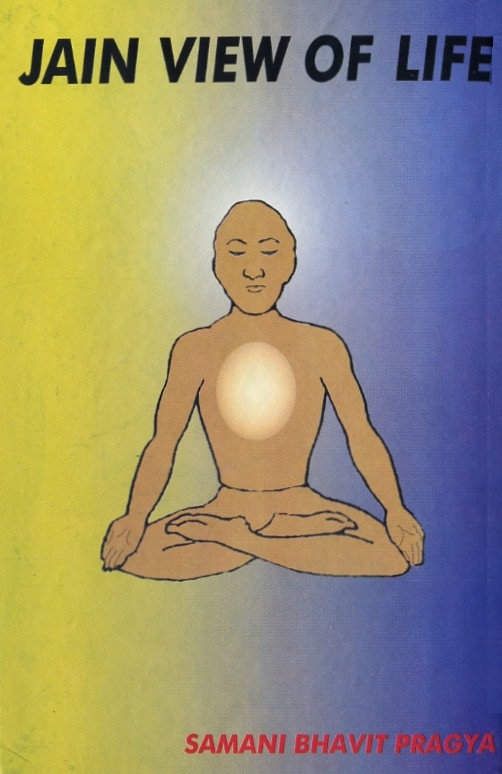Lay Followers Vows
Ascetics follow five great vows absolutely in mind, speech, and word. But, for those who want to live in family life and have a keen desire to lead a spiritual life, Jain ethics specify the following small vows (anuvratas). These vows help to lay out a rational course of life and tend to lead to liberation. Those lay followers who practice anuvrata are known as anuvrati. Anuvratas are twelve in number:
It means abstinence from gross injury or intentional or purposeless violence in word, thought, and deed towards himself or through others or by approving such actions committed by somebody else. In this vow they abstain from engaging in anything that is not strictly required for them.
In this vow, they abstain from gross telling of lies to fulfill their own vested interest, giving false evidence, or denying, or giving back the property of others. They also avoid speaking such truth as would be the cause of killing innocent beings.
This means abstaining from stealing, robbing, looting, thieving, plundering, misappropriating other's property, and using dishonest or illegal means in acquiring worldly things.
It means abstinence from sexual intercourse with anybody else but ones own wife. They avoid adultery and excessive sexual indulgence totally, and practise continence in regard to intercourse with one's own wife or husband.
This means abstain from hoarding land, gold, houses, cattle, etc., in large scale, and try to make voluntary limits on one's own needs, possessions, and acquisitions such as land, real estate, gold, silver, money, other valuables goods, cattle, and furniture. In this vow, they vow not to possess accumulations beyond a limited extent.
For strengthening and cultivating the effect of anuvratas, three Gunavratas and four sikshavratas have been prescribed. These seven vratas are supplementary vows. The following Gunavratas are to be practiced for the whole life like the above five vratas to keep life on the right track.
Dig means direction, vrata means a vow. It is a vow to carry out one's own movement only within a restricted area. In this vow, they limit the distance up to which he will go in different spatial directions.
This means to limit the sensual enjoyment of material things. Upabhoga means consumption^ food, drink, etc., which can only be used once, and paribhoga stands for semi-permanent articles like cloth, furniture, ornaments, buildings, etc., which can be used several times. They restrict fifteen types of sinful professions which are known as karmadana like manufacturing and supplying arms, selling meat, cutting forest, etc., and twenty-six articles such as food, ornaments, etc. In this vow, householders limit the everyday usage of the quantity or number of food items, articles, etc.
In this vow, householders abstain from all kinds of purposeless violence, thinking ill of others, manufacturing or supplying arms. They prevent themselves form indulging in those acts which are not required.
Among the twelve vratas, the last four are called disciplinary vows or practical vows (sikshavrata). All four vratas are to be practiced repeatedly. Of the four, samayika and Deshavakasika are to be observed daily while paushadhopavasa and atithisamvibhaga are observed occasionally.
This means abstinence from all sinful activities for a fixed intended period of forty-eight minutes known as muhurt. While sitting motionless, they perform samayika meditating and contemplating upon their own soul with equanimity of mind.
It means further lessening in the respect of the sphere of digvrata in certain areas and bhogopbhoga parimana for particular days and limited times. In the foregoing vows, renunciation is made for the whole life, but the renunciation for a fixed time or shorter period comes under deshavakasika vrata.
In this vow, they accept all the restrictions of a monk and pass time in meditation or religious study like a monk for one or more days by retiring household activities and keeping the fast by giving up all kinds of food, drink, etc., on the eighth, fourteenth, or fifteenth day of each fortnight or month as per will.
It means to offer food, drink, medicine and other articles to monks and nuns with great reverence and with avoidance of all blemishes. It amounts to a sin to prepare food or other things intentionally for their sake. Before taking breakfast or lunch, householders think, wish, and feel that it would be better for me if I had the chance to provide some portion of my food to a monk. This is called atithisamvibhaga. If monks and nuns are not available, even they think about monks and nuns.All vows are to be observed in true spirit. By performing and practicing all these vows, a lay follower leads a righteous, spiritual, and pious life.
 Samani Bhavit Pragya
Samani Bhavit Pragya
